Deciphering the Enigma of Reishi Mushrooms: An In-Depth Handbook
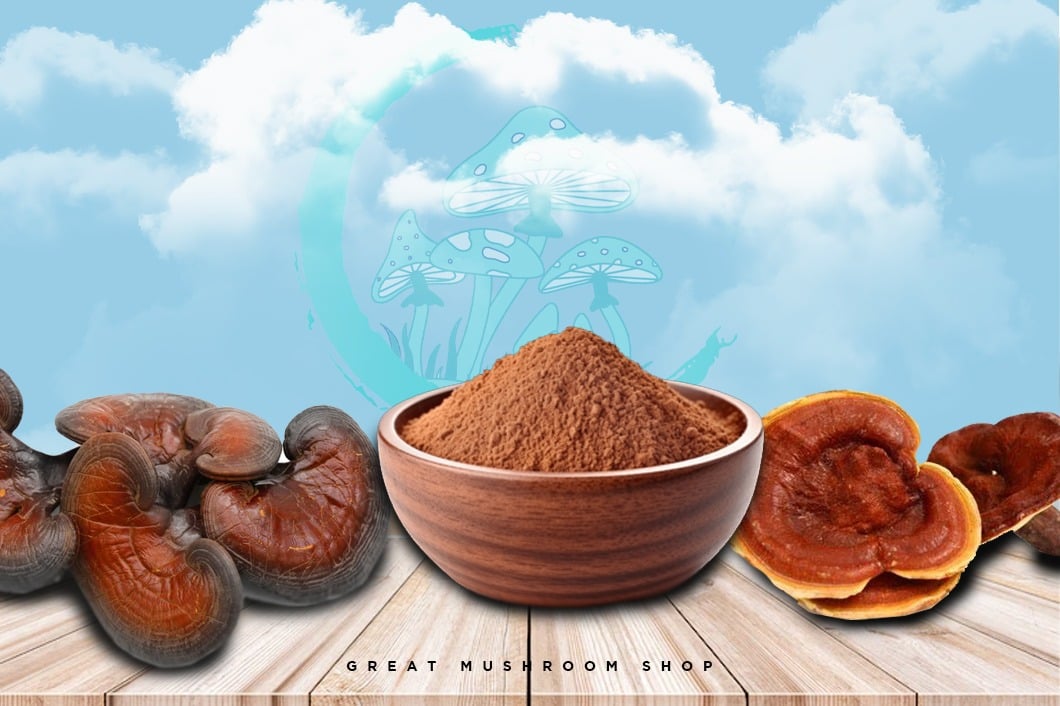
Reishi mushrooms, scientifically known as Ganoderma lucidum, have been revered for centuries in traditional medicine and are often referred to as the “mushroom of immortality” or the “elixir of life.” Originating from Eastern Asia, these mushrooms have gained global recognition for their potential health benefits and adaptogenic properties. In this comprehensive guide, we will delve into the various aspects of Reishi mushrooms, exploring their history, nutritional content, medicinal uses, and the latest scientific research supporting their health claims.
A Historical Perspective
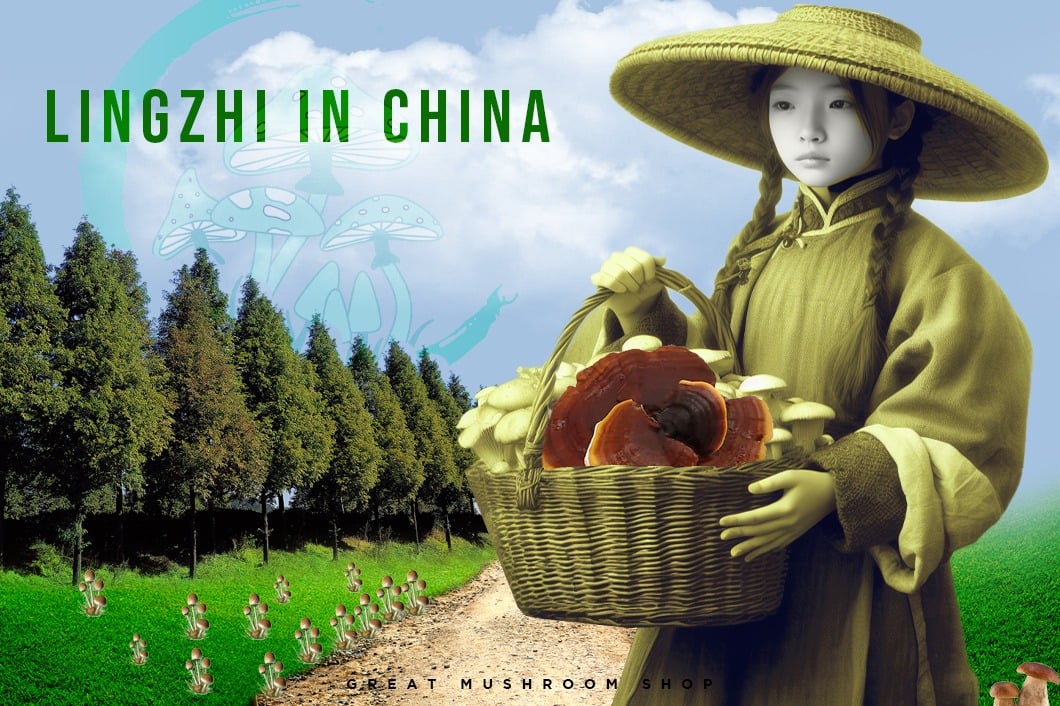
Reishi mushrooms have a rich history deeply rooted in traditional Chinese medicine (TCM), where they have been used for over 2,000 years. Known as Lingzhi in China, Reishi was considered a symbol of good health, longevity, and spiritual potency. Ancient texts and scrolls highlight its use by emperors, scholars, and Taoist monks, attributing it with mystical properties. As we move forward in time, we’ll explore how Reishi mushrooms have transcended cultural boundaries and gained popularity across the globe.
What Does Reishi Do for The body?
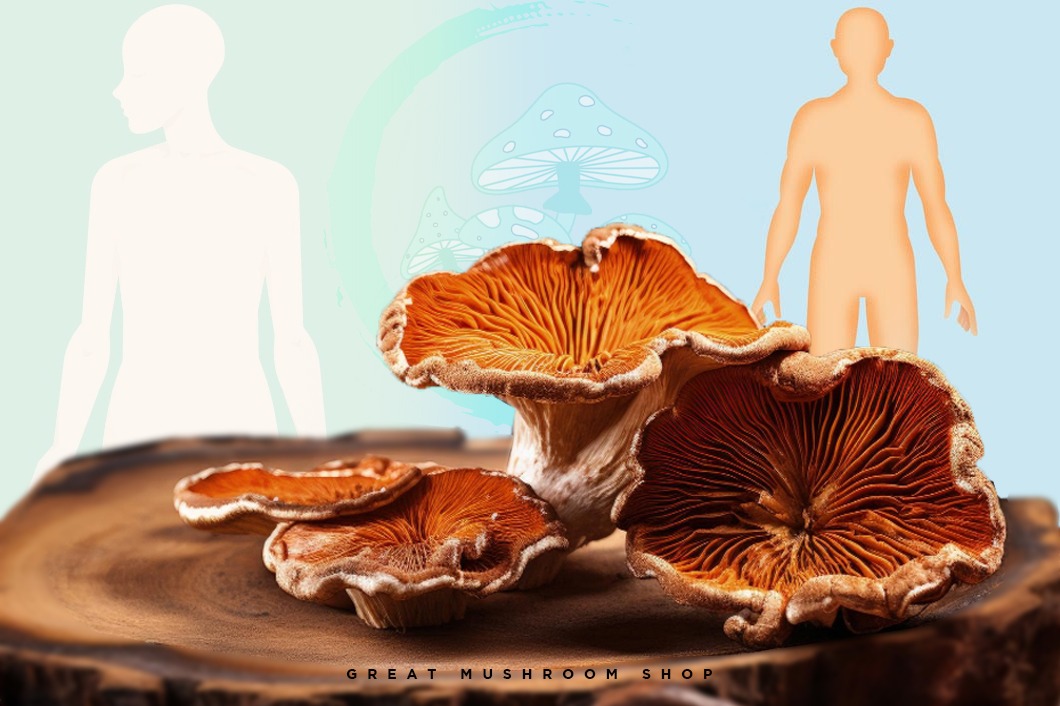
Reishi is renowned for its adaptogenic properties, meaning it helps the body adapt to stressors. It may support immune function, promote relaxation, and contribute to overall well-being. Additionally, Reishi is believed to have anti-inflammatory and antioxidant effects, which can aid in combating oxidative stress in the body.
Nutritional Composition
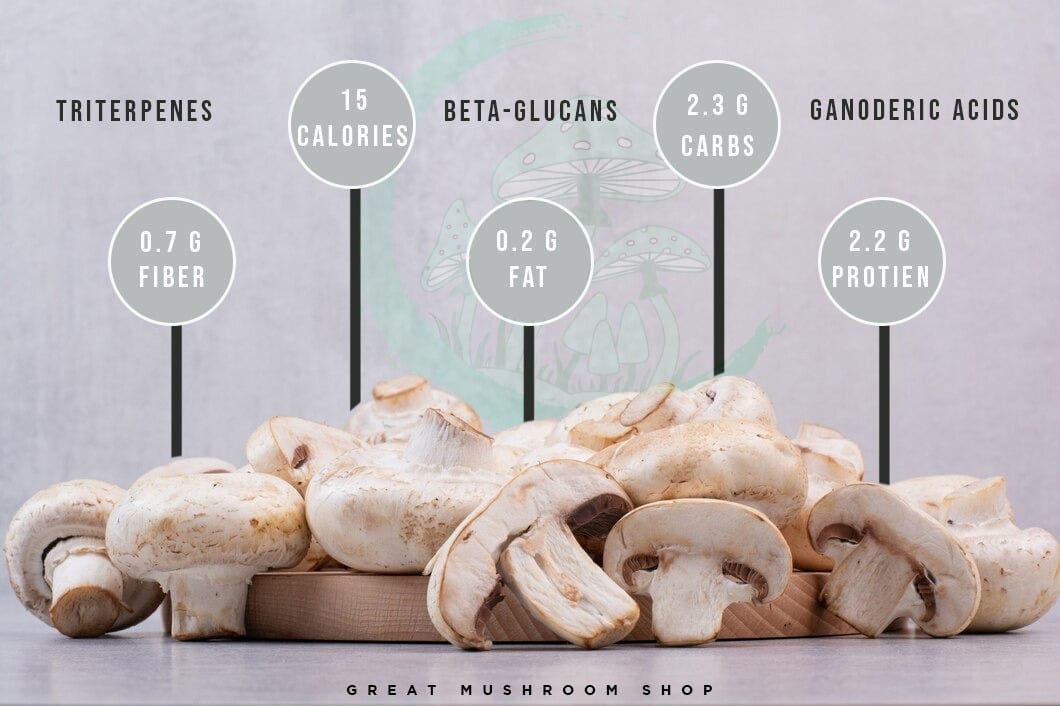
Key Components of Reishi
Reishi mushrooms are rich in bioactive compounds that contribute to their potential health benefits. Some of the key components include:
Beta-Glucans
These are polysaccharides that have immune-modulating effects and are thought to enhance the body’s defense mechanisms.
Triterpenes
Reishi mushrooms contain triterpenes, which are believed to have antioxidant properties that may contribute to overall health.
Ganoderic Acids
These compounds are unique to Reishi and are thought to have various therapeutic effects, including anti-inflammatory and antitumor properties.
Peptides and Proteins
Reishi mushrooms contain proteins and peptides that may play a role in supporting immune function.
Potential Effects of Reishi Mushroom
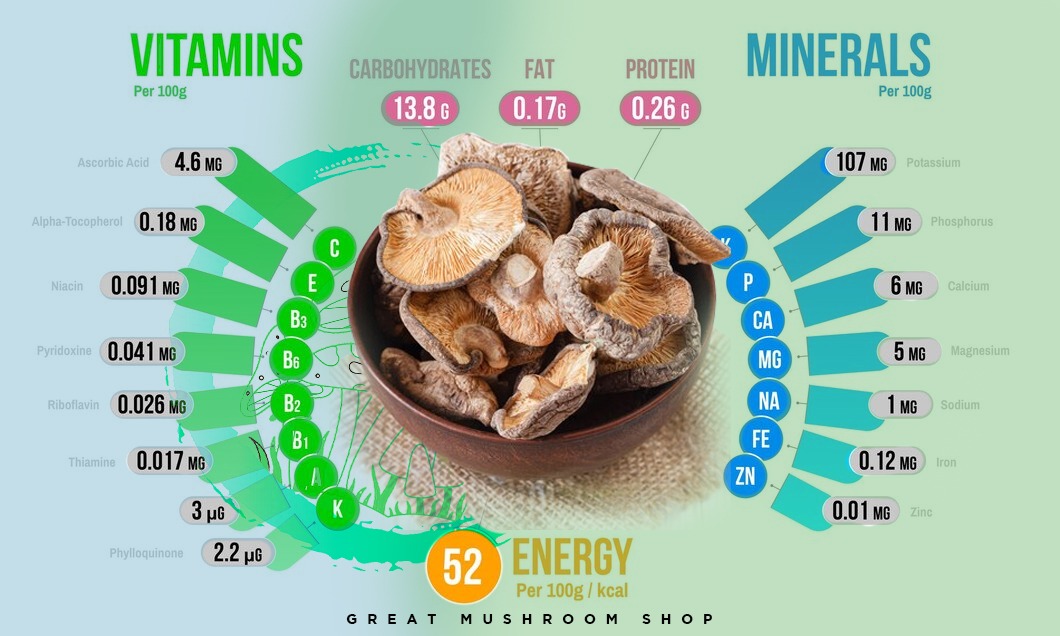
Numerous studies have explored the potential immune-modulating effects of Reishi mushrooms. While some research suggests that Reishi may have positive impacts on the immune system, it’s essential to approach the findings with a critical mindset. Here are some key points based on existing scientific literature:
Immune System Modulation
Some studies propose that the beta-glucans in Reishi may help modulate the immune system, enhancing its ability to defend against infections and diseases.
Anti-Inflammatory Effects
Research indicates that the triterpenes in Reishi mushrooms may possess anti-inflammatory properties, potentially contributing to overall health and immune function.
Antioxidant Properties
The ganoderic acids found in Reishi mushrooms may act as antioxidants, helping to neutralize harmful free radicals in the body.
Adaptogenic Effects
Reishi is often classified as an adaptogen, a substance believed to help the body adapt to stressors and maintain balance. This adaptogenic quality may indirectly support immune health by reducing the impact of chronic stress on the body.
Hepatoprotective Properties
Studies suggest that Reishi may have hepatoprotective properties, supporting liver health and potentially aiding in the prevention of liver diseases. However, more research is needed to fully understand the extent of its impact on liver function.
Anti-Obesity Effects
While there is some evidence suggesting that Reishi may have anti-obesity effects, it’s essential to approach such claims with caution. The overall impact on fat burning may be influenced by various factors, including diet and lifestyle.
Stress-Reduction Effects
Reishi’s potential stress-reducing properties may contribute to a sense of well-being for some individuals. Regarding serotonin, while some studies suggest potential mood-enhancing effects, more research is needed to establish a clear connection between Reishi and serotonin levels.
Choosing and Incorporating Reishi into Your Lifestyle
With an increasing array of Reishi products on the market, it’s essential to know how to choose the right supplements or incorporate Reishi into your diet. We’ll discuss various forms of Reishi products, including extracts, gummies, chocolates, capsules, and teas, and provide guidance on dosage and potential side effects. Additionally, we’ll explore culinary uses and recipes that allow you to enjoy the benefits of Reishi in your daily meals.
Precautions and Considerations
Is Reishi Safe to Take Daily?
In general, Reishi is considered safe for most people when taken in recommended doses. However, it’s crucial to consult with a healthcare professional before incorporating it into your daily routine, especially if you have pre-existing health conditions or are taking medications.
Who Should Avoid Reishi?
Individuals with allergies to mushrooms, those taking blood-thinning medications, or individuals with certain medical conditions should exercise caution or avoid Reishi. Pregnant and breastfeeding women should consult with their healthcare provider before using Reishi supplements.
Final Thoughts
Reishi mushrooms continue to captivate the interest of both traditional medicine practitioners and modern researchers. As we unlock the mysteries of these ancient fungi, it becomes clear that Reishi mushrooms offer a fascinating blend of historical significance and scientifically supported health benefits. Whether you’re seeking to enhance your immune system, manage stress, or explore natural remedies, Reishi mushrooms provide a compelling avenue for holistic well-being. Embrace the wisdom of the ancients and the advancements of modern science as you embark on your journey with Reishi mushrooms.


 1-864-342-7666
1-864-342-7666 support@greatmushroomshop.com
support@greatmushroomshop.com